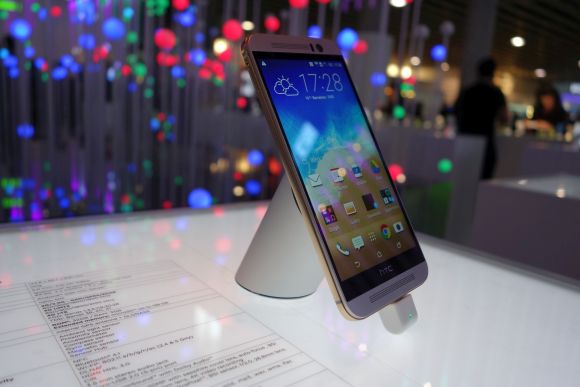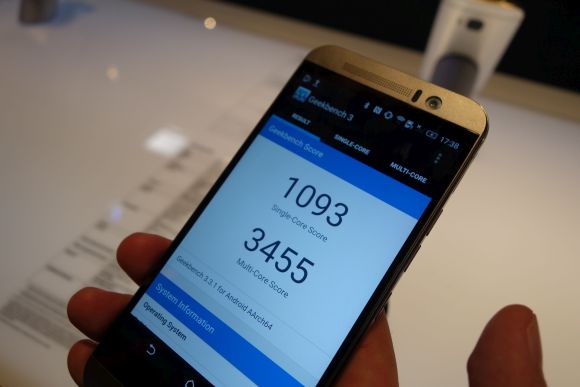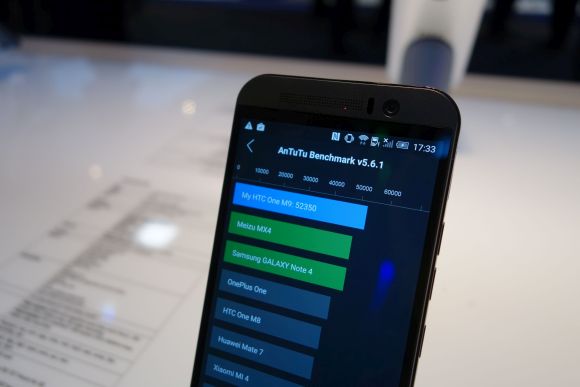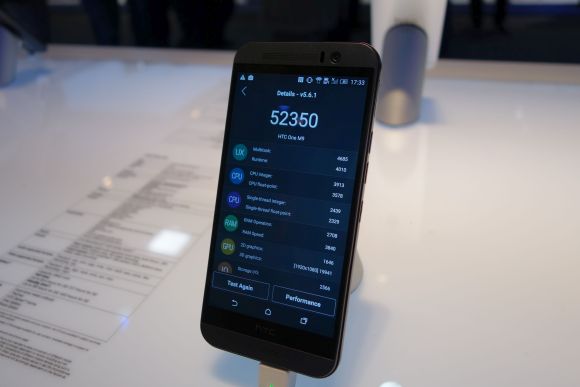We got the chance to put the HTC One M9 through its paces to see how the it compares against its other flagship rivals.
In terms of specifications, the HTC One M9 is thoroughly modern with a top of the top of the line Snapdragon 810 processor, 3GB of super fast DDR4 RAM and 32GB of on board storage, so you can expect to perform well in both the AnTuTu and Geekbench tests.
As you can see, the HTC One 9 is ahead of the competition posting a respectable 52530 in the AnTuTu test and a 1093 in the Geekbench single core test and 3455 in Geekbench’s multi core test. This puts the One M9 above all other flagship smartphones out there. It’s better than the current benchmark champion, the Meixu MX4 and its also better than the Galaxy Note 4 and the OnePlus One. However, as far as benchmark test results are concerned, the One M9 pales in comparison to the Galaxy S6. The Galaxy S6 posted a score of 67000 in AnTuTU and a score of 1476 in the single core Geekbench test and 5104 in the Geekbench multi core test.
This is perhaps due in part to a new and improved Exynos 7420 octa-core processor that boasts a 14nm core (vs a 20nm core in the One M9) that’s mated to a 3GB DRR4 RAM and for the first time in a smartphone, the use of Universal Flash Storage developed by Samsung that claims to be 30% faster and 50% more energy efficient than eMMC memory — the most common form of memory embedded in high-end smartphones today, including the HTC One M9.
Of course, benchmark scores are just one aspect of a device’s capabilities. Other aspects like battery life, ease of use as well as display, camera performance and data connectivity performance are all equally as important, and for that we’ll need more time with the HTC One M9.
Click for larger image










